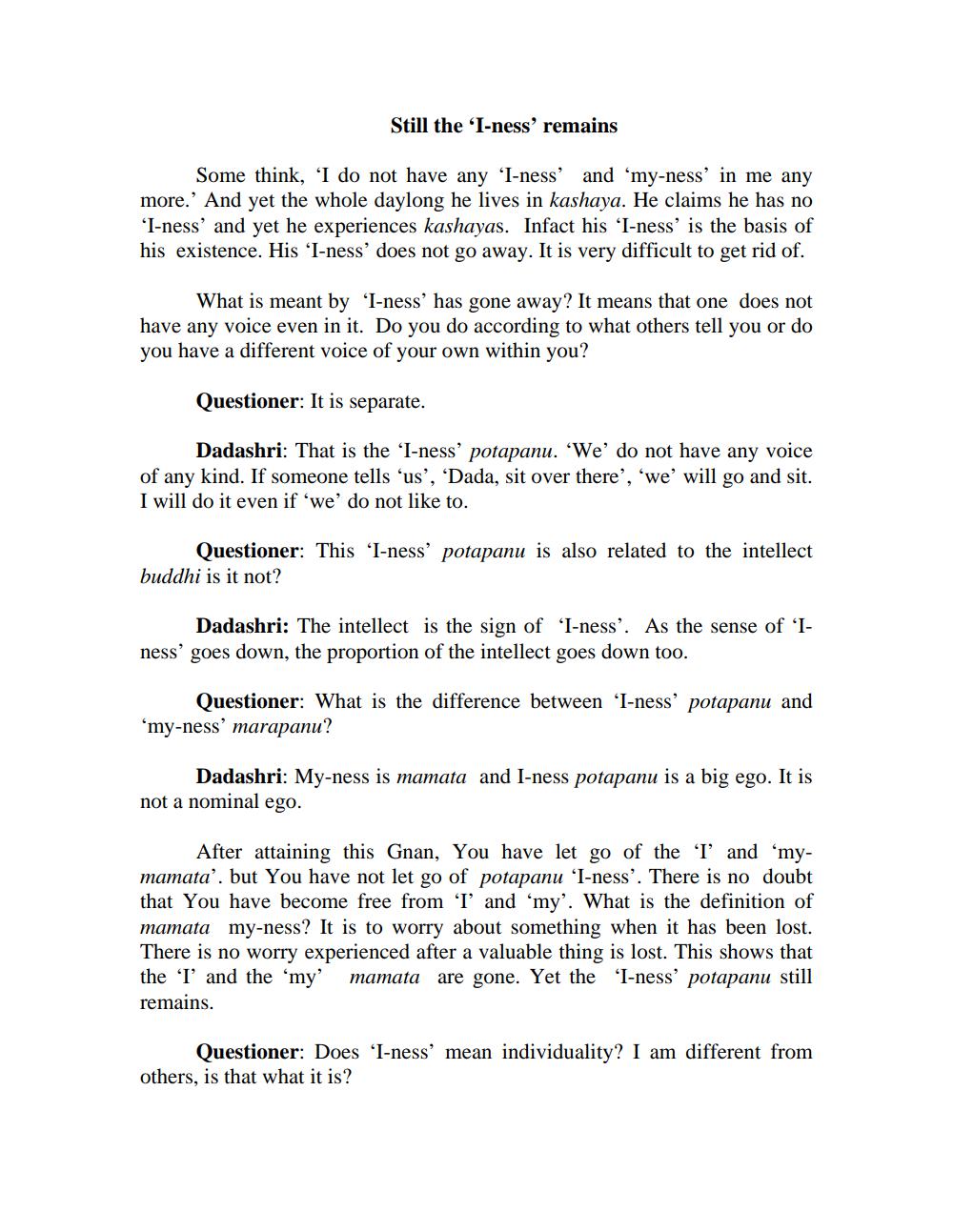________________
Still the 'I-ness' remains
Some think, 'I do not have any 'I-ness' and 'my-ness' in me any more.' And yet the whole daylong he lives in kashaya. He claims he has no 'I-ness' and yet he experiences kashayas. Infact his 'I-ness' is the basis of his existence. His 'I-ness' does not go away. It is very difficult to get rid of.
What is meant by 'I-ness' has gone away? It means that one does not have any voice even in it. Do you do according to what others tell you or do you have a different voice of your own within you?
Questioner: It is separate.
Dadashri: That is the 'I-ness' potapanu. 'We do not have any voice of any kind. If someone tells 'us', 'Dada, sit over there', 'we' will go and sit. I will do it even if 'we' do not like to.
Questioner: This ‘I-ness' potapanu is also related to the intellect buddhi is it not?
Dadashri: The intellect is the sign of 'I-ness'. As the sense of 'Iness' goes down, the proportion of the intellect goes down too.
Questioner: What is the difference between 'I-ness' potapanu and 'my-ness' marapanu?
Dadashri: My-ness is mamata and I-ness potapanu is a big ego. It is not a nominal ego.
After attaining this Gnan, You have let go of the 'I' and 'mymamata'. but You have not let go of potapanu 'I-ness'. There is no doubt that You have become free from l' and 'my'. What is the definition of mamata my-ness? It is to worry about something when it has been lost. There is no worry experienced after a valuable thing is lost. This shows that the 'I' and the ‘my' mamata are gone. Yet the 'I-ness' potapanu still remains.
Questioner: Does 'I-ness' mean individuality? I am different from others, is that what it is?




